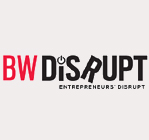2.5 Trillion Dollar Investment Gap To Achieve SDGs: Nisha Dutt, CEO, Intellecap : Media News from 9th Sankalp Global Summit

Jan 18, 2018
With just 13 years left for achieving the sustainable development goals, there still exist significant gaps in investment, finance and political will, which will require partnerships and collaborations between all stakeholders. In an exclusive interview with BW Businessworld, Nisha Dutt, CEO, Intellecap, discusses the way forward in establishing social defaults, ensuring an equitable future for all, and the need for collective action.
What according to you is the way forward in establishing social defaults and ensuring an equitable future for all?
We live in transformative times. Today, in an interconnected and extremely dynamic world – we possess a diverse range of technology and resources with which we can solve challenges to create an equitable future for all. But to ensure this future, we must understand the importance of working together to exchange knowledge and networks; distribute gains impartially, and work on providing all stakeholders with improved quality of life, that ensures mental and physical well-being. Establishing new social defaults require a multi-stakeholder approach; we need entrepreneurs, innovators, investors, corporates, academics, policymakers, and other thought-leaders from around the world to come together, deliberate and discuss their roles, and create a roadmap for shared prosperity; only then can we ensure an equitable future for all.
How can innovative finance be used to finance the establishment of social defaults?
The UN SDGs are extremely important in establishing new social defaults, but based on a recent UN estimate, there is a USD$ 2.5 trillion investment gap across developing countries to achieve the 17 SDGs. If we have to use innovative finance to establish our social defaults, we have to close this investment gap by exploring new routes to access capital like citizen-driven crowdfunding, or the use of cryptocurrency for development. We will need to reconfigure the channels of capital flows, and modes through which investments are made – using more innovative structures such as blended finance models. The challenge actually lies in enabling these innovative structures, we need to critically think of elements that will form an enabling ecosystem and the kind of actions we will have to take to make innovative finance work in favor of our new social defaults.
What does the future for work and employment entail in an equitable world?
Innovations in automation, AI systems, and robotics are leading us into a world with an “augmented workforce.” With growing automation, the future of work and employment seems to be one that is fair to all, the rise of an augmented workforce, for instance, would mean reduced drudgery and increased productivity – making leisure a possibility for all. But these ideas are nascent, to ensure there is a future of work and employment, and to ensure it exists in an equitable world – we will need to work towards securing livelihoods for those with no access to employment, appropriately skilling the workforce so people remain relevant, and ensuring that the automated, augmented workforce is not one that will take over; but assist in creating an equitable, comfortable, and secure world for everyone.
View full article



